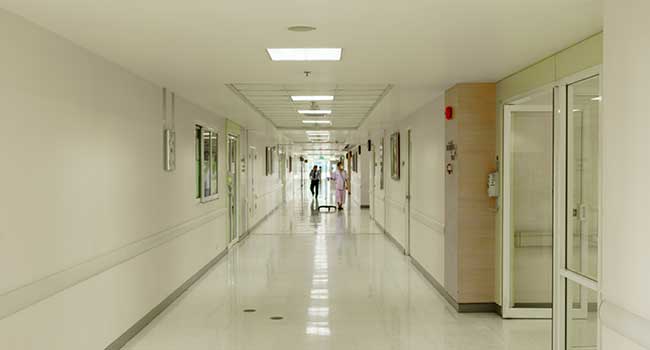
NH Medical Center Upgrades Security after Fatal Shooting
Officials at Dartmouth-Hitchcock Medical Center in Lebanon, New Hampshire, are finalizing changes to the hospital campus’s security and emergency response protocols after a fatal shooting last fall. The changes are estimated to cost $400,000.
- By Jessica Davis
- January 31, 2018
Officials at Dartmouth-Hitchcock Medical Center in Lebanon, New Hampshire, are finalizing changes to the hospital campus’s security and emergency response protocols after a fatal shooting last fall. The changes are estimated to cost $400,000.
The updates to security come in the wake of the Sept. 12 fatal shooting of a patient in the intensive care unit. The shooting was disruptive to some of the medical center services and caused confusion, as some people didn’t receive the “code silver” alert for “life-threatening workplace violence” and others received the alert but weren’t sure what to do.
According to DHMC emergency management coordinator Jim Alexander, the security team drafted changes in policy and updates to equipment after a peer-reviewed study of their security. The medical center is also coordinating with the Lebanon Police Department.
One visible change in the facility since the shooting is the security officer posted in the waiting room outside the ICU. According to Dartmouth-Hitchcock Vice President of Facilities Tom Goins, the guard answers visitor questions and makes sure they have passes and are allowed into patient rooms at appropriate times.
Hospital Director of Security Dan Dahmen said the hospital has been re-evaluating where and how it uses its security force, changing patrol routes to increase visibility in “high-profile areas” and moving a parking officer to security. Dahmen said he also has ordered bulletproof vests for the guards.
The medical center is also working to improve emergency response and protocol. The hospital ordered 1,000 one-page emergency pamphlets that will be distributed around the hospital, and employees will also be receiving emergency directions to hang from their employee ID.
In addition, the active shooter protocol will now direct people to shelter in place to avoid the situation rather than evacuate the building, according to Goins. The recommendation for hospitals nationally “is run, hide, fight for that kind of situation,” Goins said. But “having 10,000 people respond (by evacuating) is problematic unto itself.”
Recent equipment upgrades for DHMC include digital security cameras, the addition of remote door-locking capability for security staff and the ability for providers to lock down their own units from the inside. It has also added about five full-time positions to its security force in the last year. These upgrades are not directly related to the shooting.
After consideration, the hospital chose not to arm its security officers or install metal detectors.
About the Author
Jessica Davis is the Associate Content Editor for 1105 Media.